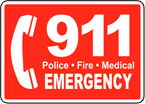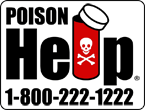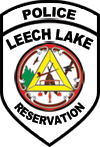- LLBO Home
- Administration
Administration
Child Support Enf.DMVDuluth OfficeEconomic DevelopmentEnrollmentFinancial ServicesFleet ManagementLegal DepartmentMIS
Opioid TreatmentPurchasingSecurityT.E.R.O.TransitTribal DevelopmentTwin Cities OfficeUtilities Commission
Tribal Court
Court HomeCourt FormsCourt FinesCourt Codes
Attorney ProceduresBaMeNim AnishinaabegDiversionTribal Court Awards
Tribal Police
LLTPD HomeAnimal ControlDomestic ViolenceMeth Coordinator Prescription Drug
- Education
- Health Division
Health Programs
AmbulanceBehavioral H.Car Seat ProgramD. Fitness CenterENPEmergency Prep.Environmental HealthFamily Spirit
Food DistributionHome Health CHRMed TransportationNutrition ServicesOccupational HealthPatient BenefitsS.H.I.P.
Elder & Disability Services
Nursing programs
Community ClinicsWadiswan "Nest"WIC
Child & Teen ClinicLL Diabetes ClinicTransform Rez
Health Reports
- Human Services
Addictions & Dependecies Program
A & D ProgramAdolescent OutpatientAhnjiBeMahDis HouseAssessment UnitFamily Violence Prevent
Outpatient TreatmentRecovery MaintenanceRelapse PreventionWomen's Halfway HouseWomen's Services
Child Welfare
Adoption ServicesChild Abuse PreventionChild ProtectionFamily Preservation
Foster CareParent Support ServicesTruancy PreventionYouth Living Skills
Other Human Serviecs Programs
- Res. Services
Reservation Services
EngineeringFacilities ManagementHeavy EquipmentRoads & SurveySanitation
Small Vehicle RepairSolid WasteWell & SepticWell Drilling
Community Services
- Resource Mgmt.
- Tribal Assistance
Tribal Assistance Programs
Contact Us


(218) 335-8277 Phone
(888) 622-9225 Toll-free
(218) 335-8297 Fax
Mailing Address
PO Box 187
Cass Lake, MN 56633
Physical Address
200 Sail Star Drive NE
Cass Lake, MN 56633
Hours of Operation
Open 24 hours/7 days
Office Hours
Monday - Friday
8:00 a.m. - 4:30 p.m.
Service Area
Leech Lake Reservation
School Liaison
 Our school resource officers provide a liaison to the Bug-O-Nay-Ge-Shig School and the Cass Lake-Bena Elementary School. Both officers assist with the school administration to provide a safe and educational environment for the students of their respective schools
Our school resource officers provide a liaison to the Bug-O-Nay-Ge-Shig School and the Cass Lake-Bena Elementary School. Both officers assist with the school administration to provide a safe and educational environment for the students of their respective schools
Bullying
What Parents Should Know About Bullying
Bullying among children is aggressive behavior that is intentional and involves an imbalance of power or strength. A child who is being bullied has a hard time defending him or herself. Usually bullying is repeated over time. Bullying can take many forms such as physical, verbal, emotional and cyber bullying.
Signs that your child might be bullied:
- torn clothes
- loss of appetite
- mood changes
- reluctance to go to school
- bruises or injuries that can't be explained
Signs that your child might be engaging in bullying behavior:
- impulsiveness
- no empathy for others
- a desire to be in control
- may be an arrogant and boastful winner and poor loser in competitive games
What to do if you suspect your child is being bullied:
Talk with your child. Be supportive and gather information about the bullying.
Report suspected bullying to your child's school. Anonymous reports can be reported to the school resource officer.
What Parents Should Know About Cyber Bullying
Cyber bullying occurs when children or teens use the internet, cell phones or other devices to send or post text or images intended to hurt or embarrass other children or teens. This can include sending mean, vulgar, or threatening messages or images; posting sensitive, private information about another person; or pretending to be someone else in order to make that person look bad. Children and teens can cyber bully each other through e-mails, instant messaging, text messages, web pages, blogs or chat rooms.
Tips to help prevent cyber bullying:
- keep your computer in easily viewable places
- talk regularly with your child about on-line activities that he or she is involved in
- tell your child that you may review his or her on-line communications if you think there is reason for concern
- consider installing parental control filtering software and/or tracking programs
- educate your child about the consequences of inappropriate use of his or her electronics, such as losing internet access or use of their cell phone
Tips for dealing with cyber bullying that your child has experienced:
- strongly encourage your child not to respond to the cyber bullying
- do not erase the messages or pictures (save these as evidence)
- try to identify the individual doing the cyber bullying
- consider filing a complaint with your service provider
- contact your child's school
- contact the police if cyber bullying involves acts such as threats of violence, extortion, obscene or harassing phone calls or text messages, harassment, stalking, hate crimes or child pornography
| Bullying Resources | ||
| Bullying Prevention: Students Helping Students |
Cyber Bullying Prevention Resources | |
Recognizing gang activity in your child's behavior
A youth gang is a group of people who get together on a regular basis to carry out violent, illegal or anti-social activities, including intimidation, assault, vandalism, burglary and even murder. Gang members generally tend to be male teenagers, but they can also be female and even as young as 7 years old.
If you think your child's school or social group is immune from gang activity, think again. The Leech Lake Tribal Police has observed evidence of gangs in every social, academic and ethnic category.
Look for these signs that may indicate a child may be involved with a gang:
- The child begins hanging out with a new group of friends.
- There's a marked change in the child's habits or personality.
- You find evidence of or suspect drug or alcohol abuse.
- The child frequently shows signs of being bruised or injured.
- You observe the child using unusual hand signs, nicknames or street language.
- The child is carrying guns, knives or other weapons.
- You observe strange symbols or graffiti on notebooks and folders.
- The child withdraws from family members or friends.
- Grades fall and/or incidents requiring discipline become more frequent.
- The child obtains money without your knowledge.
- The child dresses in the same color clothing every day or wears tattoos, unusual jewelry, hairstyles, or clothing that could identify a particular gang.
If you suspect gang involvement, contact your school's resource officer, the school's administration or speak with a Leech Lake Tribal Police Officer.


